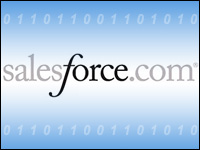
Hosted CRM vendor salesforce.com made its NYSE debut Wednesday, and got off to a quick start. After announcing its initial public offering of 10 million shares of common stock at US$11 per share, the company’s stock soared to around $17 per share by day’s end.
The previous day, salesforce filed a pre-effective amendment with the Securities and Exchange Commission, raising the price proposed on its IPO from its earlier estimate of $7.50 to $8.50 per share to $9 to $10. By the end of the day, the company and its underwriters had upped the opening stock price even higher to $11 per share.
One of the most anticipated IPOs of the year, the salesforce debut was delayed last month after its CEO Marc Benioff gave an interview to The New York Times that might have violated the so-called “quiet period” that prevents companies from promoting their stocks before an offering.
Fresh Meat
Aberdeen Group analyst Chris Selland told CRM Buyer he thinks salesforce.com’s fast start demonstrates its healthy valuation. It also bodes well for RightNow’s imminent IPO, as well as for NetSuite’s later this year, he said.
For his part, Paul Luby, president of Reno, Nevada-based Salesjunction.com, called salesforce.com’s IPO important because it highlights the hosted-CRM market.
“They validated the idea of hosted CRM and have enjoyed being the leader so far,” he told CRM Buyer.
Meanwhile, Gartner vice president Joe Galvin explained to CRM Buyer that the revenue salesforce generates through its IPO is a good thing because it is a way for the company to reinvest money in research and development and in more business-oriented marketing.
And Keith Raffel, vice president of Siebel’s CRM OnDemand division, said that the positive reaction to the salesforce.com IPO did not surprise him.
“The public market is a hungry lion — and someone’s tossed fresh meat at it,” Raffel told CRM Buyer.
More ‘Sales’ Where That Came From
Dan Starr, chief marketing officer at Salesnet, another hosted-CRM competitor, said that his company is excited by salesforce.com’s quick start.
“The IPO shows that this is the way companies want to buy software,” he said in an interview with CRM Buyer. “Some of these are large and sophisticated companies, like Staples, which has 2,000 Salesnet users.”
That salesforce has more than doubled its initial IPO price is promising for future IPOs, Starr said, adding that Salesnet would be monitoring the market over the coming months. Tentatively, the company has slated its own IPO offering for sometime next year.
However, Siebel’s Raffel pointed out that there is a big difference between marketing hoopla and developing solutions that help customers more quickly and effectively sell their products or services.
“It’s the companies that do the best at providing customers with best solutions will win — and we believe that [company] will be Siebel,” Raffel asserted.
The Dark Side of Hosted CRM
Whether salesforce.com’s IPO is good for the upcoming RightNow IPO or other CRM companies waiting in the IPO wings is a tough call because the salesforce IPO could have a darker side, Salesjunction’s Luby admitted.
In its prospectus, salesforce.com warned that the low cost to enter the CRM market and possible intense competition in the future posed potential investment risks. The company also signaled that pricing pressures could erode its margins.
“What’s lost in the shuffle is the fact that there are a lot of unknown smaller companies with strong products out there also vying for a piece of the small- to medium-business CRM market,” Luby explained. “Many, like Salesjunction.com, are selling competitive features for considerably less.”
According to Luby, Salesjunction.com plans to roll out its SalesJunction Professional, a Web-based product that offers collaboration capabilities and automated e-mail follow-up for $15 per seat per month. Salesjunction also provides free data import from competitive systems to its hosted-CRM solution.
In contrast, salesforce.com’s pricing for equivalent services begins at about $60 per month for a seat, Luby said.
Gartner analyst Galvin acknowledged that the barrier to enter the hosted-CRM market is low. “But there is a long runway time to design the application,” he noted. “There’s also a great deal of investment money chasing the hosted market and that will increase the competition.”
Propelling On-Demand
Siebel’s Raffel observed that his company invests 23 percent of its $1.4 billion in annual revenue on research and development – an investment smaller competitors can’t match, according to him. In its latest filing with the SEC, salesforce invests 7 percent of its revenues into R&D.
Aberdeen’s Selland said that the enterprise market needs more robust products, although he called salesforce’s offerings a good solution for smaller companies.
“The solution always depends upon what the customer wants, and for smaller companies, hosted solutions work well,” Selland said. “The enterprise market is saturated, so the growth now is in the small- to mid-market.”
But Seibel’s Raffel disagrees that the enterprise market is saturated. He said that Siebel OnDemand is not only a product for the small- and mid-range business market but also a means for large companies to add more seats quickly. In addition, Siebel also can provide these large companies a hybrid solution by mixing Siebel OnDemand with its traditional client-server CRM solutions.
In any event, Salesnet executive Starr said salesforce’s IPO will propel on-demand software forward.
“Companies that don’t believe that are in the dark ages,” Starr said.
Deliver or Perish
Forrester industry analyst Erin Kinikin told CRM Buyer that her firm’s research estimates that the license revenue for the CRM market is about $3 billion a year. This number includes both upgrades and new purchases.
According to Kinikin, the CRM application-service-provider (ASP) market generates about $200 million in rental fees — less than 10 percent of the total market. The payback between renting and owning CRM applications is generally two to four years, and the $200 million in annual ASP fees represents $400 to $800 million in lost potential license sales.
“Essentially, the CRM licensed market has been flat while the CRM ASP market is growing 40 to 50 percent a year,” Kinikin said. “Users are speaking with their pocketbooks, [while] companies want rapid ROI and easy-to-implement solutions that can be managed and changed by business users — not IT. Ease of use matters, and the enterprise CRM vendors need to deliver the convenience users want or become extinct.”
Salesforce.com: Victor or Victim?
For his part, Galvin noted that the transition from a start-up to a public company is a big one and one that companies often have difficulty with because the combination of maintaining its growth and adapting its organization to consider the demands of shareholders can prove to be distracting.
Meanwhile, Salesjunction’s Luby believes that salesforce.com may become a victim of its own success.
“I think that they have an unsustainable level of revenue,” Luby said, predicting that inside a year, salesforce.com will feel competitive margin pressures and suffer a drop in its stock.
“It won’t help the market to see one of its CRM stars stagger,” Luby warned.
Kinikin pointed out that while salesforce.com has validated the hosted-CRM market, keeping it is another thing. “It’s open season on salesforce, and the result should be some better options and good deals for customers,” she said.
Said Galvin: “Now [salesforce.com] will be under scrutiny every day. Welcome to the big league.”






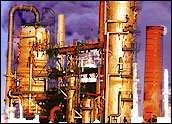

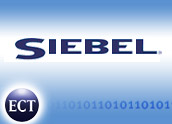


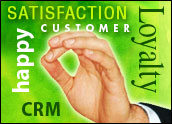
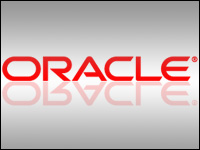












































Social CRM
See all Social CRM